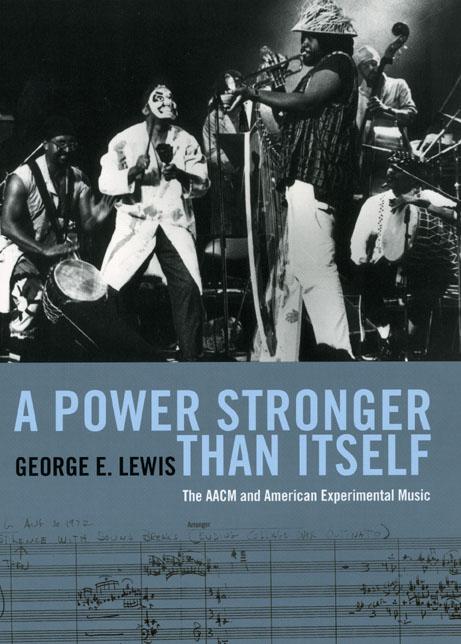A modern music missed by modern scholarship

The Chronicle of Higher Education‘s Peter Monaghan has written several interesting articles recently about the Association for the Advancement of Creative Musicians, “a celebrated avant-garde collective that began in the poorest neighborhoods of Chicago in the 1960s,” and the subject of George E. Lewis’s recent A Power Stronger Than Itself: The AACM and American Experimental Music. In both articles Monaghan notes the significance of Lewis’s book as the first academic treatment of the AACM and the highly influential experimental music it produced, and ponders the question, put forth in Lewis’s book, of why such a groundbreaking group of artists hasn’t received more attention by mainstream academics:
In his book, both social history and critical study, Lewis makes a claim that devotees of the AACM have long embraced but that is discomforting some composers and critics: The jazz-related collective, which emerged from black, working-class areas of Chicago in the 1960s, became one of the most significant artistic forces of the 20th century—yet histories of American musical experimentalism almost never say so.…
Lewis cites the historian Jon D. Cruz’s observation that criticism of the new music as “just noise” recalled many slave owners’ earlier obliviousness to the significations of slave songs. “Similarly,” writes Lewis, “the noisy anger of the new musicians seemed strange, surprising, and unfathomable to many critics, along with the idea that blacks might actually have something to be angry about.”
As a result, Lewis contends, music historians have failed to acknowledge the influence of the “transgressive new black music” of the AACM and other innovators like Ornette Coleman, John Coltrane, and Cecil Taylor, dispatching them to the ranks of mere jazz oddballs.
Lewis’s critique of American avant-gardism is “profoundly important and long overdue,” according to a specialist in American and 20th-century music, Amy C. Beal, an associate professor of music at the University of California at Santa Cruz. “Histories of 20th-century music and jazz are racially segregated, and there are various institutional reasons why that happens,” she says, “It’s time we started examining them.”
You can read both Monaghan’s pieces —“Thoroughly Modern Music” and “Experimental Music and Academe”—online at the Chronicle.com website.
Also read an excerpt from the book.